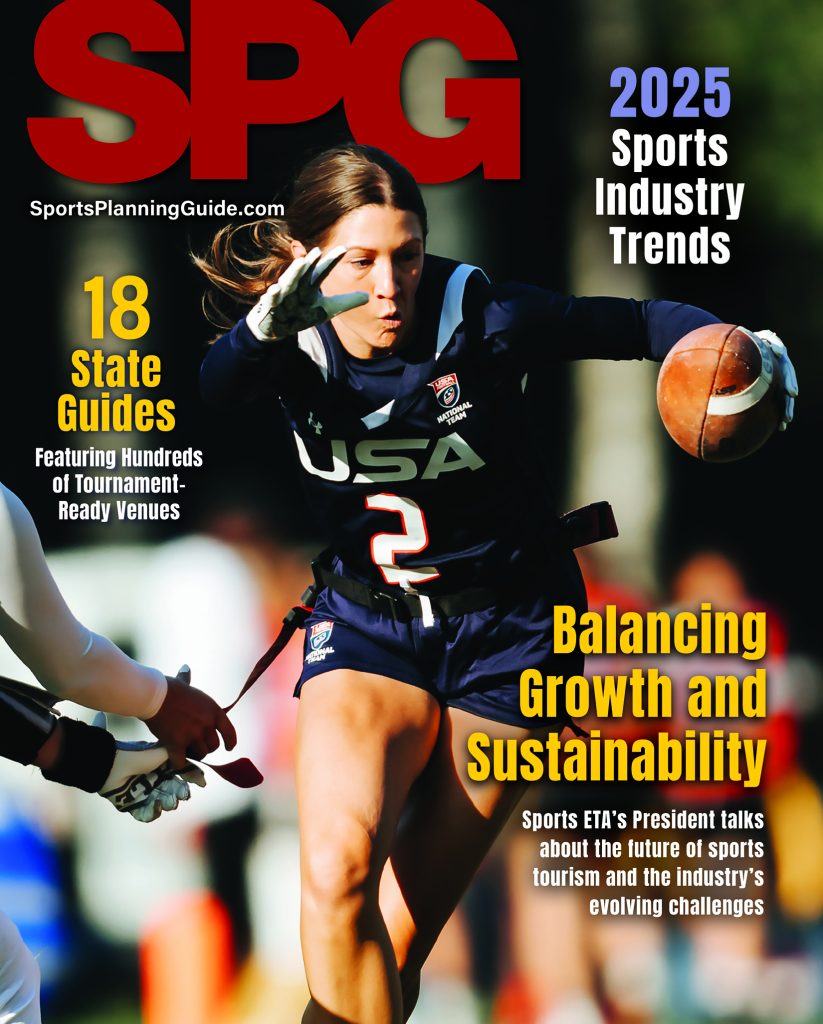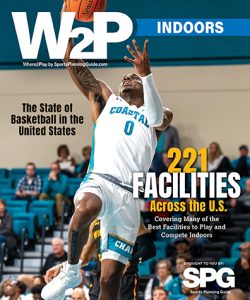Green is a magic word. In business, it is discussed on a daily basis. Sustainability is an integral cog in corporate responsibility. And while many industries have adopted sustainable practices, sports events still seem to be lagging.
“For sports, it’s not at the level or standard of corporate America,” says Ethan Nelson, board chair of the Council for Responsible Sport. “Most companies add corporate responsibility, sustainability to their plans. Why are sporting events any different?”
It has become the council’s mission to make responsible events the norm, and to spread the word to local governments, organizations and associations to raise awareness about the importance of sustainability. One destination that is excelling in this effort is Eugene, Oregon. The region has hosted a number of “green” sports events, most notably the U.S. Olympic Track and Field trials, for which it won an international Olympic Committee Award for Sustainable Sports.
But you don’t have to be of Olympic stature to organize a green sports event.
“If an event doesn’t have a sustainable mission, we always try to talk to them about adding a component to it,” says Janis Ross, executive director of Eugene, Cascades & Coast Sports. “For some groups, it’s a completely new concept, and others are doing a great job already, but they just need our help augmenting it.” No matter what level you are at, Cascades & Coast Sports takes the time to talk through some of the basic steps that sports organizers can make in order to create a more sustainable event.
The team in Eugene gets organizers and groups to think about the waste the events produce, and suggests recycling and composting for everything from paper flyers to utensils at concessions.
“We really make them think about all the materials that they use,” says Ross. “Even lanyards and T-shirts.”
Water is also a big deal when it comes to sports events. Eugene always recommends installing water stations where attendees can refill their bottles, rather than hand out plastic water bottles. Ross says reducing emissions is another step groups can take to be more green, as well as having vendors that have strong sustainability missions, such as buying local and recycling.
Many events have benefited from this advice and made strides in building sustainable athletic competitions. For example, the Fat Fifty Five Bike Race added the environmental aspect of trail maintenance to its event, promoting the idea to leave the trail in better condition than when the riders got there. As far as their vendors, the organizers make sure all food is local and organic. The local roller derby league has an annual event called the Big O, which brings in over 1,000 competitors, and they still maintain a zero waste policy by replacing paper forms with electronic ones and implementing the reuse, recycle concept.
So how does Eugene do it? A lot of it has to do with infrastructure and government support.
“We are extremely fortunate here in Oregon and in Eugene in particular,” Ross says. “Because we have such a strong infrastructure that supports sustainability for not only local residents but also for events and conferences that take place here.”
The city has partnerships with city entities and organizations to provide sports groups with vendors who have sustainable practices or with resources for recycling or composting. The utility company even provides silverware and plates for groups to use for free so they can avoid using plastic utensils for meetings or small events.
In addition, the University of Oregon has a strong sustainable initiative. The new Matthew Knight Arena, opened in January 2012, is LEED Gold Certified, making it one of the best places to host a green sports event. In fact, the goal for any new building that has gone up in the last three to four years is to become LEED certified. Many of the structures use energy- efficient lighting, have water efficiency measure or were built using recycled or regional materials.
These kinds of facilities, as well as strong public infrastructure, are essential for creating sustainable sports events, according to Nelson. “Facility owners rely on public infrastructure,” he says. “Without that, they can’t do anything.”
Help from the municipal level is key in development, and once it is obtained, the possibilities are expansive. The Council for Responsible Sport is trying to spread that message.
“We’re reaching out to governments, organizations, associations to raise awareness about the program,” Nelson says. “It reduces your impact and adds value to your brand and the people you’re partnering with.”
This message holds true in Eugene, and many other destinations looking to bring in more sustainable events can look to the city for guidance.
“It’s really important…to include your local jurisdiction, your city or your county,” Ross says. “Find out how things can be improved or changed to create the environment to make it easier for people to move their event along to sustainability.”
On top of that, sports organizers and sports commissions should educate themselves and find good national and local resources to help make an event green.
“One thing we always stress to both events and to a destination is…to start off small and work your way up,” says Ross. To help with this, the Council for Responsible Sport has a checklist of basic things that anyone can do to make their sports tournament sustainable.
These resources make planning a green sports event more approachable, and allows for destinations and groups to learn the process that works best for them. Even well established locations like Eugene continue to evolve and become better at sustainable events.
“We want to continue to grow on what we already do,” Ross says. “It’s a constant process, and we’re learning new things every day.”
The more destinations and sports groups can learn and develop in this industry, the better off everyone will be.
“The greatest impact isn’t what happens on game day, but what happens when the fan leaves…and incorporates new knowledge into [his or her] daily life,” says Nelson. “The take away is that we want to act in a way that inspires people to make a change in their life.”
−By Vanessa Day






